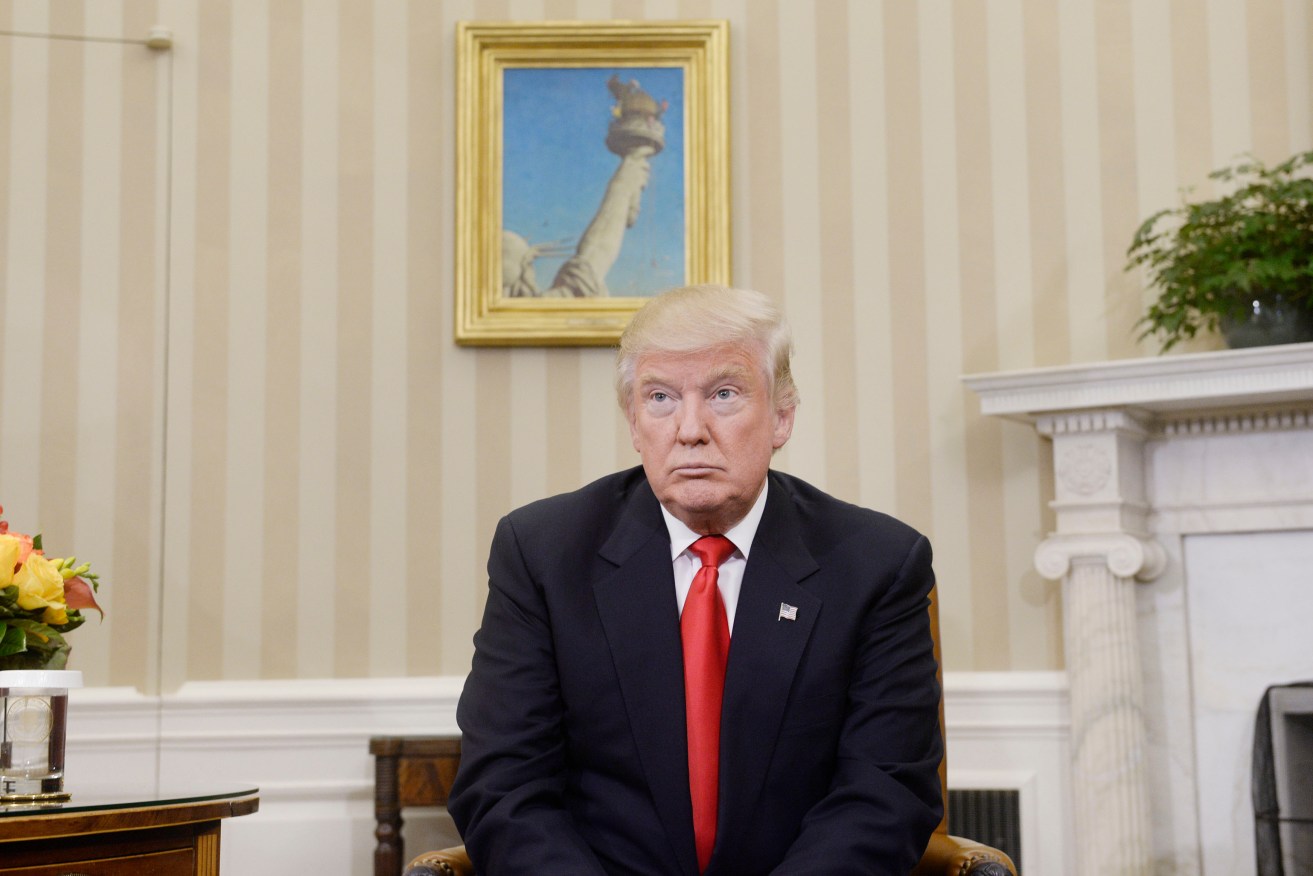Trumped up regional fears
The unease with which US Asian allies Australia, Japan, and South Korea viewed the Trump election victory was plainly evident in their leaders’ strident statements affirming the durable nature of their alliances. Set against the isolationist, protectionist, and nationalist Trump campaign rhetoric, Australia, Japan, and South Korea sought to calm the debate. After his conversation with the President elect, PM Malcolm Turnbull confirmed Trump’s pragmatic approach to alliance relations.

Donald Trump. Photo: Olivier Douliery/ABACA
Why the strident pushback? Each state is clearly concerned to delimit the effects of the Trump electoral hyperbole. Any US embarkation on a force retrenchment from the region, and a consequent removal of US deterrence, would exacerbate regional instability and dramatically amplify an arms race already in train. Trump’s insouciance as to Japanese and South Korean acquisition of nuclear weapons to compensate, further amplified their fears. The rhetoric also misread the substantial contributions that Japan and South Korea already make to US forward force basing and deployment, in addition to Australia’s renewed security cooperation with the US over the past decade.
These states can cope with burden-sharing but not abandonment.
That said, the pushback is also likely to arise within the US security community, including Congress. The US has substantial strategic and commercial interests in the region, the oversight of which is unlikely to be easily relinquished by wider and deeper US defence interests. The benefits of leadership of a post war liberal order that accrue to the US are also unlikely to be forfeited either quickly or completely. Furthermore, Trump’s plans to expand the military does not speak to retreat.
A more coherent and refined policy approach might also serve to mitigate regional government fears. Fears that their alliance relations could be jeopardised by public distaste for Trump and a commensurate decline in public support for the alliance. One only needs to think back to the effects of the Bush unilateralism and resultant decline in Australian domestic support for the alliance in the mid 2000s to understand government concerns. Not that polls are always on the money.
On the plus side it might also spur regional states to work harder on cooperative security measures. There’s plenty of upside for the Indonesia bilateral and Japan has had a very successful post war history in trust-building with Southeast Asian states.
And so to Trump trade policy. Of the 7 point free trade plan listed on his website, and a plan designed to reconstruct the American economy, the first four statements reveal a determination ensure trade agreements are more favourable to the US and that violations are prosecuted. The Trans Pacific Partnership will be scrapped, NAFTA renegotiated or scrapped, and US trade negotiators will be recruited straight from the Die Hard academy: as if anyone involved thought they had not been to date.
The latter three points of the plan tersely describe punitive measures to force Chinese compliance with trade rules, with trade remedies, anti-dumping, and IP theft deserved of a special mention. AUSFTA is safe however, as Bishop observed this week, after all, the US runs a surplus with Australia.
Where Obama pursued regulation Trump favours compliance. As the early engineers of US led economic architecture knew, write the rules, get buy in, and reap the benefits. The US was looking to secure a position at the heart of the new economy. Not so far, for Trump.
Certainly, an electoral promise to restore employment to those marginalised by processes of economic structural adjustment over the past few decades, is worthy indeed. However, these zero-sum trade calculations have the propensity to fuel a trade war, with implications for all states including Australia. Given our close relations with both the US and China, trade conflict is an unhappy place for Australia. Further to that, in an era of global value chains, these policies are likely to hurt US businesses and workers with flow on effects internationally.
And while we are all focused on the agency that Trump is threatening to exercise in reclaiming America it is worth remembering that structural forces abound. Governing might just look quite different to campaigning.
Maryanne Kelton Senior Lecturer in International Relations, Flinders University
Dr Maryanne Kelton is a senior lecturer in International Relations and deputy director of the Centre for US and Asia Policy Studies at Flinders University. She researches Australia-US alliance relations and has analysed US economic statecraft in the region. She is the author of More than an Ally? Contemporary Australia-US Relations (Ashgate, 2008) and has published in the International Relations of the Asia-Pacific, Australian Journal of International Affairs, and the Australian Journal of Politics and History. Maryanne is the co-author of in-person foreign policy simulations and is the recipient of Australian Government and University awards for teaching and learning.
DISCLAIMER: These opinions are those of the author, not of Flinders University or other affiliated institutions.





